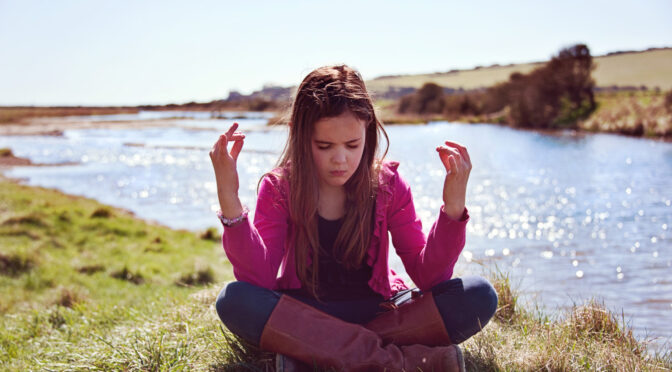 Our kids are increasingly struggling in school. They are diagnosed with all kinds of mental disorders when they can’t sit still and quietly listen to a teacher drone on about civics or grammar.
Our kids are increasingly struggling in school. They are diagnosed with all kinds of mental disorders when they can’t sit still and quietly listen to a teacher drone on about civics or grammar.
We are now starting to wake up to something that could be a big in the contexts of troubled kids in school.
Meditation is an all-natural concentration drug with a whole range of mental benefits. One School in New England started with transcendental meditation (TM) for kids and the results are stunning. Watch this video to hear the kids tell their stories:
Here are some of the things the teachers and students have to say about transcendental meditation in school:
 “Since I learned to meditate […] I could sit and focus better. I could feel clearly what they were saying.”
“Since I learned to meditate […] I could sit and focus better. I could feel clearly what they were saying.”
“I sense a feeling of peacefulness that TM brings to staff and students who have been trained – a peaceful resonance is flowing throughout the building.”
“Before TM I was kind of tense and angry about coming to school, ‘argh, I don’t wanna be here, I wanna be at home playing video games’, but now […] I wake up, I’m like ‘Yes, I’m ready to go to school’ […] it makes me more relaxed, I’m loosened up and I’m just ready to rock and roll and go to school.”
 “I had a student that came last year, extremely volatile, very angry. He’ll come into my room and say ‘hey miss, I need to meditate’. I’ll give him this quiet room – it’s his quiet space. He hasn’t been suspended once.”
“I had a student that came last year, extremely volatile, very angry. He’ll come into my room and say ‘hey miss, I need to meditate’. I’ll give him this quiet room – it’s his quiet space. He hasn’t been suspended once.”
“TM is like a washing machine – it washes away stress.”
There are an increasing number of research papers and systematic reviews on the effect of meditation for school-aged children. Here are some of their findings [1]:
“Mindfulness for young people is easy to carry out, fits into a wide range of contexts, is enjoyed by both students and teachers, and does no harm.“
“Well conducted mindfulness interventions can improve the mental, emotional, social and physical health and wellbeing of young people who take part. It has been shown to reduce stress, anxiety, and bad behavior, improve sleep and self-esteem, and bring about greater calmness, relaxation, the ability to manage behavior and emotions, self-awareness and empathy. “
 “Mindfulness can contribute directly to the development of cognitive and performance skills and executive function.
“Mindfulness can contribute directly to the development of cognitive and performance skills and executive function.
It can help young people pay greater attention, be more focused, think in more innovative ways, use existing knowledge more effectively, improve working memory, and enhance planning, problem solving, and reasoning skills.”
And the conclusion:
“Mindfulness is therefore likely to have beneficial effects on the emotional wellbeing, mental health, ability to learn and the physical health of school students. Such interventions are relatively cheap to introduce, have an impact fairly quickly, can fit into a wide range of contexts and are enjoyable and civilizing, for pupils and staff.”
It is normal practice in school to have lectures on both science and the different religions. Meditation is one area where religions and science fully agrees. It’s about time to include meditation in the curriculum of schools.
Vegard Gjerde is one of the two founders of Global Harmony Crew.
Global Harmony Crew helps people uncover their true selves and live a life full of meaning and happiness. Join the crew by subscribing and you will learn about everything from the deep metaphysical questions, to basic steps you can take in your day-to-day life to manifest happiness and fulfillment. Follow Global Harmony Crew on Facebook as well!
Reference:
[1] http://mindfulnessinschools.org/wp-content/uploads/2013/02/MiSP-Research-Summary-2012.pdf

